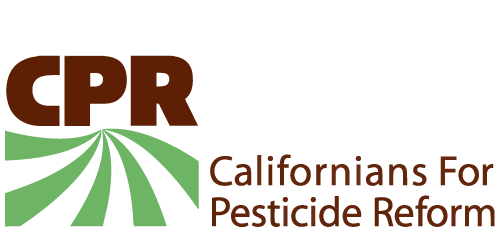Contact: Kayla Nichols, kayla@panna.org
Jane Sellen, jane@pesticidereform.org
On Wednesday, January 10th, Governor Newsom released a request to the California legislature to approve a $33.3 million increase in funds and 117 new positions at the Department of Pesticide Regulation (DPR).
The increased funding would predominantly come from an increase in the pesticide mill fee, which is a fee assessed at the first point of a pesticide sale in California. This fee is responsible for about 80% of DPR’s funding, and has not been adjusted for 20 years—remaining stagnant at $0.021 for every dollar of pesticide sales.
According to DPR, revenues generated by the mill fee have not kept pace with its funding needs in order to implement its mission to regulate pesticides and protect public health and the environment. DPR released a sustainable pest management roadmap last year that detailed increased investments needed to transition away from hazardous pesticides.
DPR is proposing to increase the fee to $.0286 over a three-year period. This is significantly lower than the increase recommended by the third-party study on the mill fee, which recommended increasing the mill fee to $0.0339 in order to fully meet DPR’s needs.
The proposed increased pesticide mill fee would need to be approved by the state legislature, likely with a two-thirds majority vote. The legislature rejected an increase in the mill fee the last time one was proposed by DPR in 2021 after strong opposition from the agriculture industry.
If passed, the funding would go towards myriad activities, such as expedited registration of new pesticides, improved monitoring of pesticide impacts, better engagement with impacted communities and farmworkers, and development of a list of high-risk pesticides for review. DPR aims to increase “registration actions” for new pesticides from 3,500 this year to 4,050, while increasing the number of pesticide safety re-evaluations from 5 per year to 5-8 per year.
Despite an overall proposed increase in DPR funding, the Governor also proposed a $2.6 million cut in funding appropriated in 2021 to develop a statewide pesticide notification system.
Statement from Asha Sharma, Organizing Co-Director, Pesticide Action Network: “Overall, the proposed increased investment in the Department of Pesticide Regulation’s activities is a welcome development for the future of agriculture in our state. California continues to use pesticides at 4.5 times the national average according to research by the Union of Concerned Scientists, and only about 5% of California agriculture is farmed organically. If used appropriately, the increase in funds could help spur a much overdue transition to safer ways to manage pests other than toxic chemical use.”
Statement from Angel Garcia, Co-Director, Californians for Pesticide Reform: “I am cautiously optimistic about the proposed increase in funds for the Department of Pesticide Regulation. However, much of this increase in funds would be used to speed up registration of new pesticide products in California—a long-time push of industrial agriculture and chemical corporations. This could jeopardize the rigor of the scientific review process. Meanwhile, DPR is only aiming to increase pesticide re-evaluations (which happen when an approved pesticide is shown to be unsafe by new scientific research) from 5 per year to 5-8 per year — a woefully inadequate goal. The funds would also be used to determine a priority list of hazardous pesticides for phase out, despite the fact that state scientists have already developed many such lists, making this a redundant process. The state must take steps to reduce overall pesticide use, not just the worst of the worst, since many chemical pesticides carry health and environmental harms.”
Pesticide Action Network (PAN) and the statewide coalition Californians for Pesticide Reform (CPR) applaud Governor Newsom’s proposals to increase the pesticide mill fee, improve the monitoring of pesticide impacts, and to enhance engagement with impacted farmworkers and communities. However, it remains to be seen whether these funds will be used to help create a lasting and positive impact on California’s agriculture industry or if this will be just another bandage on a broken system.
Pesticide Action Network’s mission is to end reliance on hazardous pesticides and achieve health, resilience and justice in food and farming. PAN uses grassroots science, strategic communications and coalition organizing to build power with communities across the U.S. and around the world to confront the harms of industrial agriculture and build solutions, and is one of five regional centers who cooperate to transform systems of food and farming across the globe.
Californians for Pesticide Reform is a diverse, statewide coalition of 200+ member groups working to strengthen pesticide policies in California to protect public health and the environment. Member groups include public and children’s health advocates, clean air and water groups, health practitioners, environmental justice groups, labor, education, farmers and sustainable agriculture advocates from across the state.
